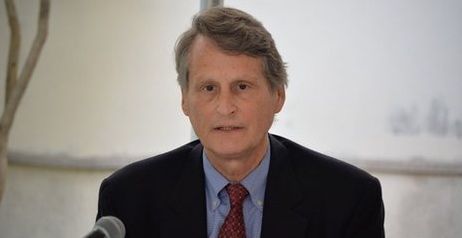
The talks, the talkers and Gross

MIAMI – Some personal observations on the just-concluded migration talks.
The U.S. State Department issued a short press statement on Friday (10 January) summarizing the meeting held yesterday in Havana between U.S. and Cuban officials “to discuss the implementation of the 1994 and 1995 U.S.-Cuba Migration Accords.”
The second of the statement’s three paragraphs dealt with the American delegation’s “call for the release of Alan Gross, who was arrested […] on Dec. 3, 2009, and later sentenced to 15 years in prison for facilitating uncensored internet contact between a small religious community on the island and the rest of the world.”
One day earlier, the Cuban Ministry of Foreign Relations (MINREX) had issued its own press statement on the meeting, in which it cited “the actions taken by both parties to combat illegal migration and aliens smuggling.”
“The Cuban delegation insisted once again on the fact that these phenomena would not be eradicated nor there could be a legal, safe and orderly migration as long as the wet-foot-dry-foot policy and the Cuban Adjustment Act are not derogated,” it said, “for these are the main encouragement to illegal departures and irregular arrivals of Cuban citizens in the U.S. territory.”
The Cuban statement made no mention of Alan Gross, most likely because his case is not one of illegal migration but of smuggling unauthorized electronic devices with intent to aid subversive groups or individuals, as his trial established.
The “small religious community on the island” cited by Washington — the Hebrew Community Council — has already denied requesting or receiving the sensitive telecommunication devices taken into Cuba by Mr. Gross, a U.S. government subcontractor.
Technically speaking, the Gross case is irrelevant to an agenda that, by the American statement’s own admission, is intended “to promote safe, legal and orderly migration between Cuba and the United States.” It is a criminal case that needs to be aired in another forum, and the Cuban delegation yesterday followed protocol by not responding to the U.S. request and not even mentioning it in its communiqué.
Who were the chief negotiators in yesterday’s talks? On the Cuban side, Josefina de la Caridad Vidal Ferreiro, director general of the U.S. Division of the MINREX, and on the U.S. side, Edward Alexander (“Alex”) Lee, an acting deputy assistant Secretary of State for the Western Hemisphere.
Little is known publicly about Alex Lee, who is not listed on the roster of Assistant Secretaries and Other Senior Officials at the State Department.
A search of the State Department website shows that, at various times, he has manned the Colombia Desk and has headed the offices of Canadian Affairs and, most recently, Mexican Affairs. The website does not contain his biography or his picture.
Back in 2004, Lee was deputy chief of mission at the U.S. Interests Section in Havana, under James Cason, then chief of mission and currently Mayor of Coral Gables, Fla. He remained as deputy chief when Michael Parmly took over in 2005.
To this observer, it seems peculiar that the State Department assigned an acting deputy assistant — a stand-in deputy assistant, and presumably low on the totem pole — to deal with the head of the MINREX’s U.S. Division, an unbalanced match in diplomatic terms. Is the State Department sending a second-string player to face the top-ranking U.S. specialist in Havana? If so, why? Is it an expression of calculated disdain for the topic of migration?
In my view, the issue of migration, one that affects thousands of Cubans, deserves seriousness and transparency. Maintaining secure borders and protecting lives is not an afterthought.
Emilio Paz, a Cuba-watcher, writes occasionally for Progreso Weekly. He lives in Miami.

